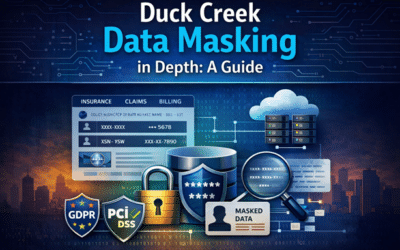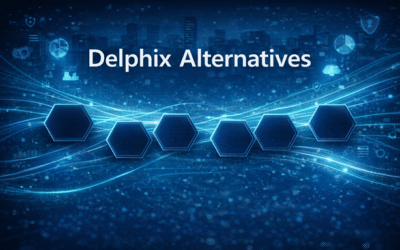- Catalyses governance and transparency of your complete IT fabric
- Promotes metric stewardship; allowing resilience and reliability to be measured
- Displays risks & failure impact; allowing for planning and management of failover practices
Relevant Articles
A Data Loss Prevention Security Checklist for Enterprise
Companies today are collecting more data than ever and using analytics to influence everything from sales and marketing to research and development. In fact, data is now one of the most valuable assets that a company can own. Yet while data is more important...
Enterprise Architecture Principles: 13 for Resilience
Modern enterprises operate in environments defined by constant change. Cloud adoption, regulatory pressure, cybersecurity threats, distributed teams, and accelerating release cycles all increase the complexity of the IT landscape. In this environment, resilience is no...
Duck Creek Data Masking in Depth: A Guide
Insurance platforms are data-heavy by design. Customer identities, policy records, payment details, underwriting notes, claims histories. In a Duck Creek ecosystem, that data powers critical business processes across policy, billing, and claims. It also creates...
What is a Microservice Catalog? A Detailed Explanation
Microservices have revolutionized the way modern software systems are designed and developed. Breaking down complex applications into smaller, independently deployable services brings numerous benefits in terms of scalability, flexibility, and maintainability....
Delphix Alternatives: 7 to Consider in 2026
If you’re searching for delphix alternatives, you’re likely evaluating your test data management strategy. Delphix is widely recognized for data virtualization and masking, but it is not the only option available. As enterprise environments grow more complex and...
Enterprise Release Manager: A Guide to the Role
Do you want your company to scale efficiently? Look for an enterprise release manager (ERM). An ERM protects and manages the movements of releases in multiple environments. This includes build, test, and production environments. They ensure that there is a proper...









